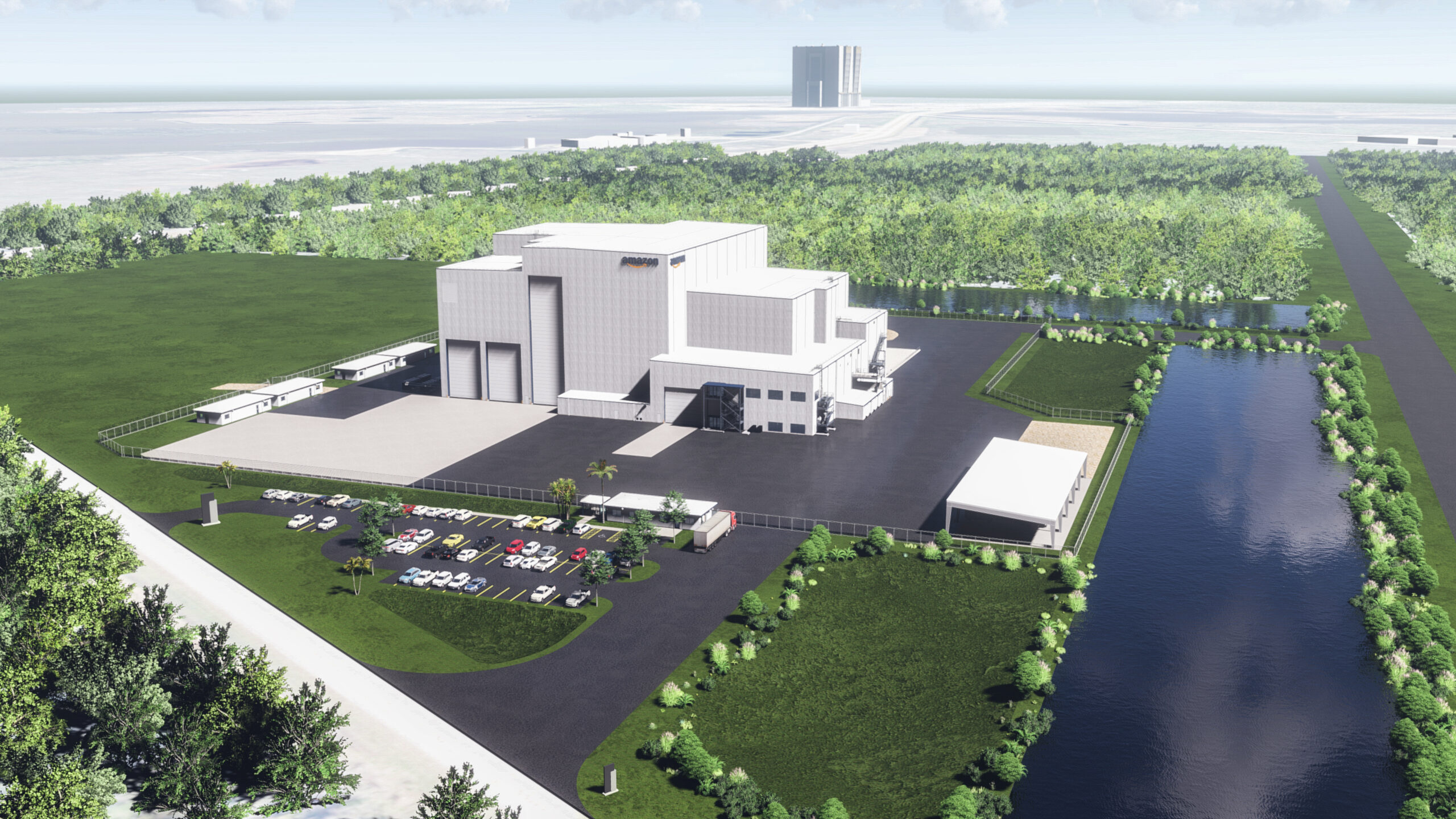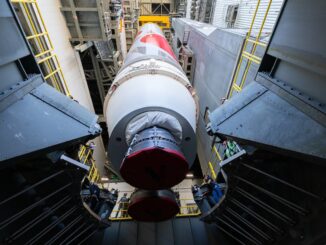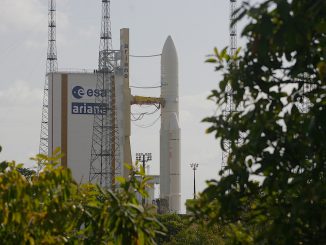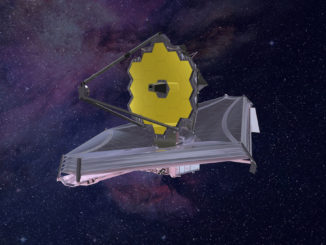
On Friday, online retail giant amazon will join with members of Space Florida to reveal its plans for a 100,000-square-foot satellite processing facility located at Space Florida’s Launch and Landing Facility (LLF) at NASA’s Kennedy Space Center.
Amazon hopes to rival satellite internet companies like SpaceX in the coming years with its forthcoming Project Kuiper constellation. The goal is to launch and operate more than 3,200 satellites in low Earth orbit as part of a system that includes customer terminals and a ground network, powered by Amazon Web Services.
On Friday, the company announced a key step towards that goal with a $120 million investment in the Florida end of its supply chain.
“We have an ambitious plan to begin Project Kuiper’s full-scale production launches and early customer pilots next year, and this new facility will play a critical role in helping us deliver on that timeline,” said Steve Metayer, vice president of Kuiper Production Operations, in a statement.
“We are proud to partner with Space Florida to bolster the growing space industry in Florida and elsewhere across the United States, and we look forward to adding more talent to our skilled operations and manufacturing team. These employees will play an important part in our mission to connect tens of millions of customers worldwide.”
Amazon first announced its plans to use 3,236 satellites to offer broadband internet back in 2019. The company stated that its satellites will begin production later this year at its facility in Kirkland, Washington.
The new site in Florida is designed to “received those satellite shipments, conduct final preparations ahead of launches, connect satellites to custom dispensers from Beyond Gravity, and integrate the loaded dispensers with launch vehicles.”
Beyond Gravity, the company formerly known as Ruag Space, manufactures the payload fairings for United Launch Alliance’s (ULA) Vulcan Centaur rocket and France-based Arianespace’s Ariane 6 rocket. Both companies were selected by Amazon in April 2022, along with Blue Origin and its New Glenn Rocket, to launch the Project Kuiper constellation.
The five-year launch contracts are comprised of 83 launches, awarding 18 to Arianespace, 12-15 to Blue Origin and 38 to ULA on Vulcan. That’s in addition to the nine launches Amazon awarded to ULA aboard its Atlas V rocket in 2021.
Originally, a pair of prototype satellites were set to launch aboard ABL Space Systems’ RS1 rocket, but they were shifted to become part of the payload set for the inaugural Vulcan launch, now targeting no earlier than the fourth quarter of 2023.
Because that launch was at one point set to launch in the front end of 2023, but has since been delayed, Spaceflight Now asked Amazon if those prototype will continue to fly aboard the first Vulcan or if plans shifted.
A spokesperson said in a statement that they are “evaluating our options,” but said at the moment they are sticking with the Vulcan mission “as soon as ULA is prepared to launch.”
The spokesperson added that Vulcan delays are not impacting their first production satellites.
“Our prototype mission will provide valuable data for the team, but we’ve also completed extensive testing in the lab and field and our operational model allows us to continuously incorporate new learnings over time,” an Amazon spokesperson told Spaceflight Now. “We’re already moving ahead with satellite production and deployment plans in parallel to the mission, and we remain on track to begin production launches and early customer pilots next year.”
From “Project Comet” to Project Kuiper
The plans for Amazon’s new facility at the LLF, formerly NASA’s Shuttle Landing Facility, began as a discussion internally two years ago at Space Florida, an entity designed to help foster business across the State of Florida in the space sector.
It was first presented to the board of directors under the working title of “Project Comet” on Jan. 26, 2022. At the time, Amazon management stated that it wanted to invest $120 million.
Amazon said it expected to create about 50 jobs by 2025 with an annual salary of $120,000. The median household income in Brevard County, where KSC is located along the Atlantic Coast, is $63,632, according to U.S. Census data.
That was approved unanimously by the board. An approval to complete negotiations with Amazon was approved by the Space Florida board during a follow-up meeting on July 28, 2022.
Amazon also sought matching grant funds from the Florida Department of Transportation (FDOT) Spaceport Improvement Program in the amount of $3.2 million for a Space Commerce Way Connector, according to the Jan. 26, 2023 board minutes.
“Adding Amazon’s Project Kuiper satellite payload processing facility to the region’s growing industrial capability in commercial space is a testament to the power of building a statewide ecosystem that supports companies across the entire aerospace supply chain,” said Frank DiBello, president and CEO of Space Florida, in a statement. “We couldn’t be more thrilled that Project Kuiper chose Space Florida’s Launch and Landing Facility for this facility, and we look forward to being a part of their mission of global connectivity.”
Amazon will be discussing its plans in greater detail during an event on Friday. This article will be updated.



